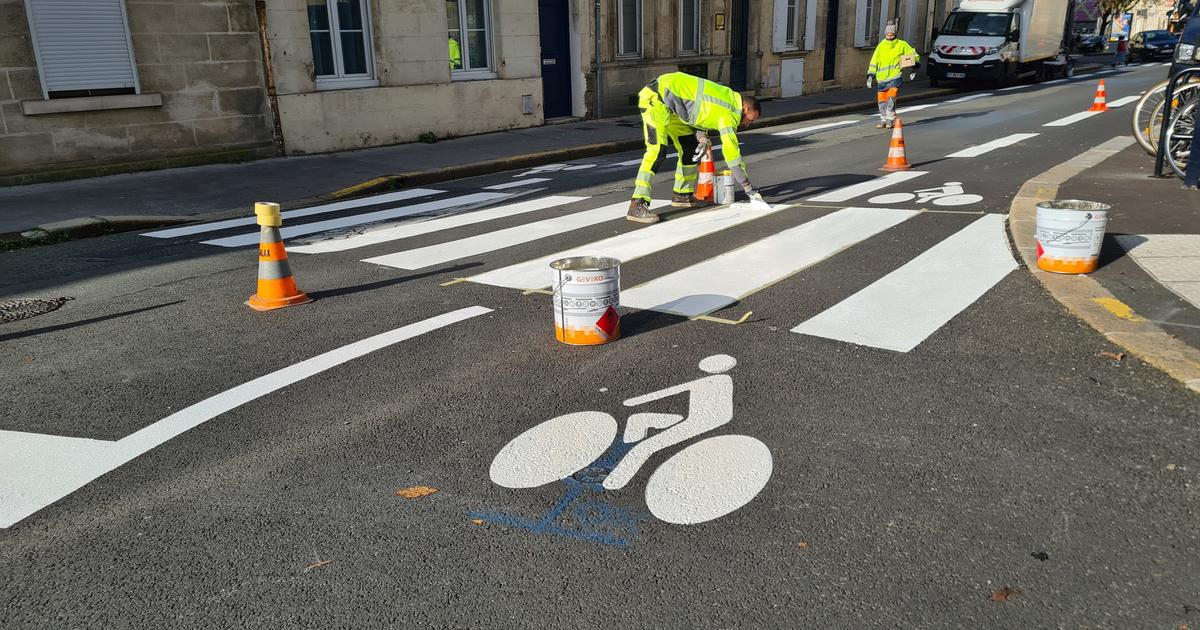Le Figaro Bordeaux
A well-deserved reputation? Bordeaux is regularly cited among the most bike-friendly cities in France and sometimes even in the world. On Thursday, the Tour de France - which will pass through Bordeaux for the first time in 13 years - awarded the highest level of its "Ville à vélo" label to the Gironde capital. A consecration for the ecologist municipality, which however wishes to "go even further" in the evolution of mobility.
Environmentalists, however, are not trying to pull the blanket on themselves. "It's not just the work of the town hall," dismisses Didier Jeanjean, deputy mayor of Bordeaux in charge of nature in the city and peaceful neighborhoods. The rise of cycling is indeed a phenomenon that can be observed everywhere in France. In five years in the Bordeaux metropolitan area, bicycle traffic has increased by 50% and the cycling network by 39%. A phenomenon amplified by the coronavirus epidemic and its sanitary measures. For this local elected official, the work of the municipality consists largely in "supporting these new and dynamic practices", by making it easier and safer to use the bike and by democratizing its practice.
Engaged in the national system "Know how to ride a bike", the city has for example this year trained about a thousand CM2 students to cycle in the street, to prepare to pedal to college. The town hall also supports local associations committed to cycling, such as Vélo-Cité, which are nevertheless critical of certain developments, especially when it comes to creating shared lanes between buses and cyclists rather than dedicated and secure spaces for each means of transport.
See alsoParking in Bordeaux: the city wants to "reshare public space"
8000 cyclists per day on the boulevards
«
This is not satisfactory, "admits Didier Jeanjean in this regard. "You have to go to specific lanes, for pedestrians, bicycles and buses." For example, the criticized development of the Saint-Jean bridge, with the disappearance of a bike path in favor of a bus and bike corridor, is still under consideration. "We have not said our last word," says the deputy in the face of criticism, saying "work to ensure that there is a bike flow in own site, separate from buses".
Another example of a shared but criticized lane is that of boulevards, which were exclusively reserved for cars, and now have a lane dedicated to buses and cyclists. A partial success, but not an end in itself. "Thanks to this measure, we managed to gain 8000,<>bikes per day on certain sequences," says Didier Jeanjean. The next step would indeed be to have a separate bike path, "but we have shaken up the uses on the boulevards so much that we could not immediately make a bike lane on our own site".
Criticized by the opposition of the right and the center, which accuses it of not doing enough for cycling, the ecologist majority highlights the latest developments made in Bordeaux by the right, which would not sufficiently take into account the little queen. Two examples would be glaring: Place Gambetta, "a place that cost ten million and where there was not a bike path while the sidewalks are ten meters," plagues Didier Jeanjean, and Place Tourny, where cyclists, pedestrians, buses and motorists cross in a "meeting area" which, according to the elected official, would be a real "lawless zone".
Read alsoBordeaux wants to experiment with urban radars to "enforce the 30 km / h"
"There are still a little too many cars"
Not wishing to redo work on these recent developments, the majority focuses instead on three "circulars", explains Didier Jeanjean: boulevards, courtyards and quays. "It is necessary that on these three circulars we can have at least shared bike bus lanes or at best bike lanes on its own site". "Penetrating axes" for bicycles will also be installed, for example on the right bank, with two "high-quality lanes" that will start from Cenon and Quai des Queyries to reach Place Stalingrad.
These lanes will be wide enough for two vehicles to ride side by side, allowing experienced cyclists and e-bikes to safely overtake. In addition, to fight against theft, in addition to the "velobox" (secure bike hutches) and "bicycletteries" (bicycle garages with secure access for residents) installed with the metropolis, the municipality has created in three years 10,000 parking spaces for bicycles, including about 4500 hoops.
«
We must go a little further, "insists nevertheless Didier Jeanjean. Recognizing that "for now, there are still a little too many cars", the elected official hopes that when the city is "rid of unnecessary transport (transit, parking search)", motorists who will have no choice but to take their car will also be able to "circulate more easily". Because for the deputy, "when the infrastructure is well ordered, there is no conflict", but to streamline transport, work remains to be done.

